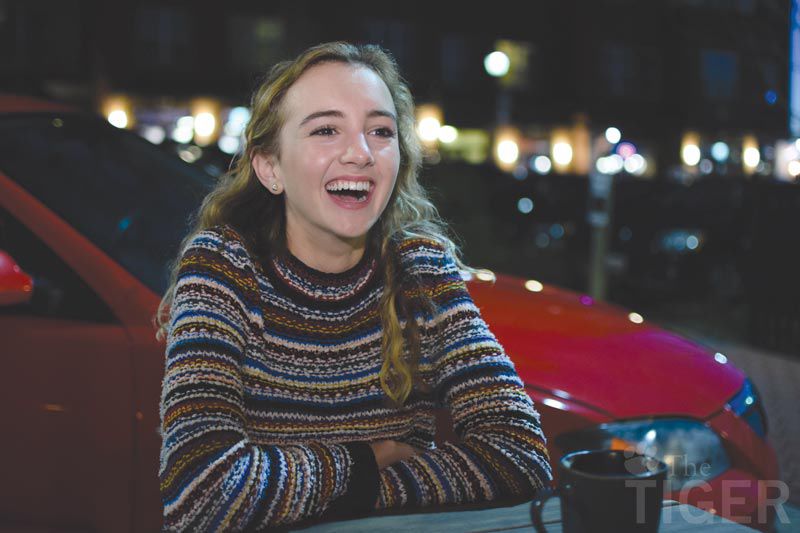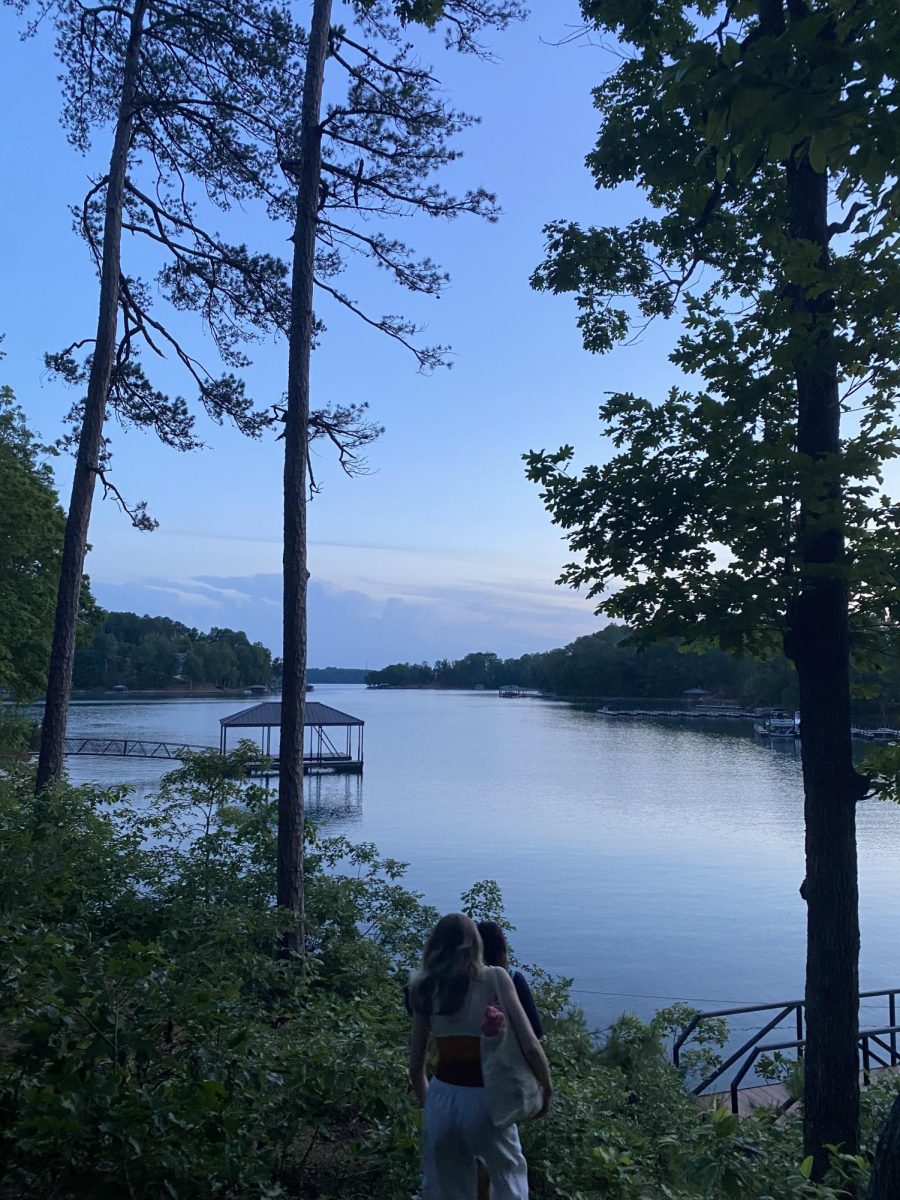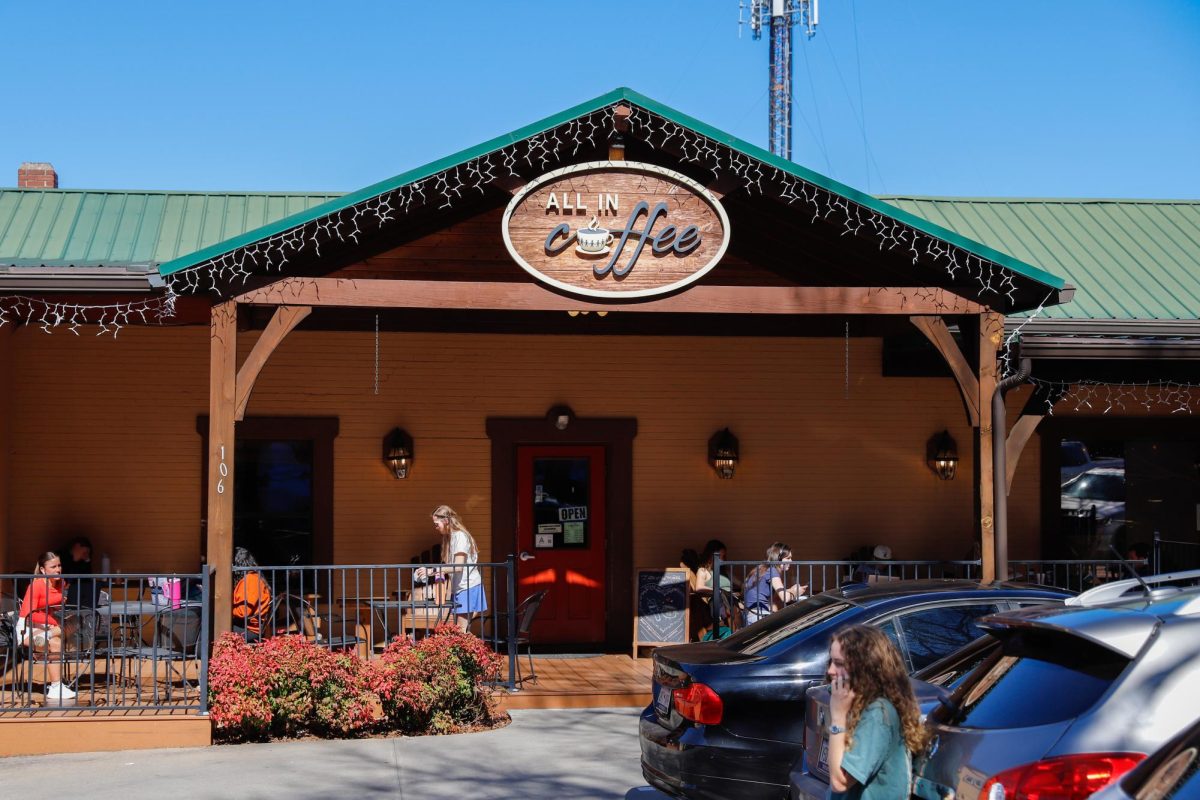Tucked away in a local Clemson coffee shop, behind an ever present smile and the warmest personality imaginable, lies the mind of a literary and business visionary. Maggie Herring, Class of 2020, is going places. Sevilla, Spain is her destination next year, as she will be taking a study abroad opportunity there, but for now, Herring is taking Clemson’s literary and visual arts magazine, The Chronicle in a new direction.
The Chronicle is Clemson University’s oldest publication, celebrating its 120th anniversary this year. Herring is this year’s Editor-in-Chief, supervising the production of the fall and spring publications of the magazine.
A Spanish and International Trade major with a concentration in political science, Herring has been involved in literary magazines even before Clemson, working to produce Ornithos back in high school, the Hammond School.
“Everything about it was creative. The design of the book, the outside, inside, it all seamlessly tied together under one unified idea,” Herring said.
Lessons learned working on the Ornithos carried over to The Chronicle, in particular Herring’s message in regards to how a literary magazine can be a work of art all on its own. To Herring, a literary magazine can serve as more than just a collection of works.
“We can have a theme, but the work inside does not have to match the theme,” Herring said. “The theme is there to bring notice to some important idea but not to take away from the work inside. And that’s hard.”
Looking towards the future, Herring visualizes The Chronicle expanding and becoming self sufficient, tying her interest in the arts with practical business ideas.
“One of our biggest goals is within five years to be completely sustainable when it comes to revenue,” Herring said. “Up until then, we would have small goals, like have our entire event budget to be covered by our revenue. To run it kind of like a business.”
She also hopes that The Chronicle rises in national attention, so that it can better attract talented artists and writers. Most magazines do not accept submissions if they have been published already. To maximize the impact of an artist’s work, it helps to submit to large, well known publications.
“You as an artist, as a writer, do you want to submit work to a group that really isn’t that high esteemed? You want it to be a big deal. For a lot of artists, they submit something once and that’s as much as they can do it,” Herring said. “We want to be that first option.”
As for Herring, the future itself is not so clear, although the possibilities are equally as bright. Alongside her work with The Chronicle, Herring also does research in the political science department and has taken classes in both Mandarin and Spanish.
“One dream would be to work at a really cool governmental job,” Herring said. “Maybe like a think tank or something. Like something modern but also creative.”
Herring wants creativity to shine through no matter what she does, saying there will always be a spot for the arts in her future, and emphasized her desire to keep writing, citing that authoring a book is one of her long term goals.
“[I love] writing… For me, ever since I was little, I always saw it as a puzzle, which is kind of a weird way to think about writing but I see it as a way to form all these big thoughts together into a few sentences. And like how can I make that impactful in the shortest amount of space.”









